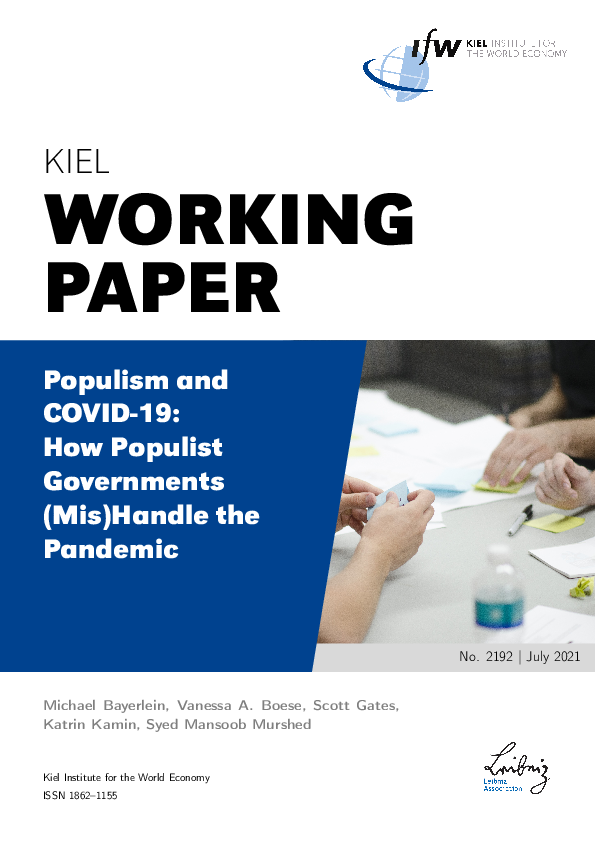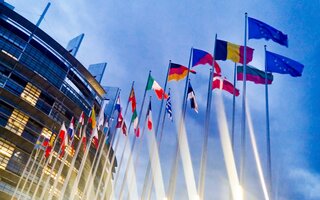Arbeitspapier
Populism and COVID19: How Populist Governments (Mis)Handle the Pandemic
Autoren
Erscheinungsdatum
JEL Classification
Schlagworte
Europa
Wirtschafts- & Finanzkrisen
Schwellen-& Entwicklungsländer
Gesundheit
Populist parties and actors now govern various countries around the world. Often elected by the public in times of crises and over the perceived failure of ‘the elites’, the question stands as to how populist governments actually perform once elected, especially in times of crisis. Using the pandemic shock in the form of the COVID-19 crises, our paper answers the question of how populist governments handle the pandemic. We answer this question by introducing a theoretical framework according to which populist governments (1) enact less far-reaching policy measures to counter the pandemic and (2) lower the effort of citizens to counter the pandemic, so that populist governed countries are (3) hit worse by the pandemic. We test these propositions in a sample of 42 countries with weekly data from 2020. Employing econometric models, we find empirical support for our propositions and ultimately conclude that excess mortality in populist governed countries exceeds the excess mortality of conventional countries by 10 percentage points (i.e., 100%). Our findings have important implications for the assessment of populist government performance in general, as well as counter-pandemic measures in particular, by providing evidence that opportunistic and inadequate policy responses, spreading misinformation and downplaying the pandemic are strongly related to increases in COVID-19 mortality.






